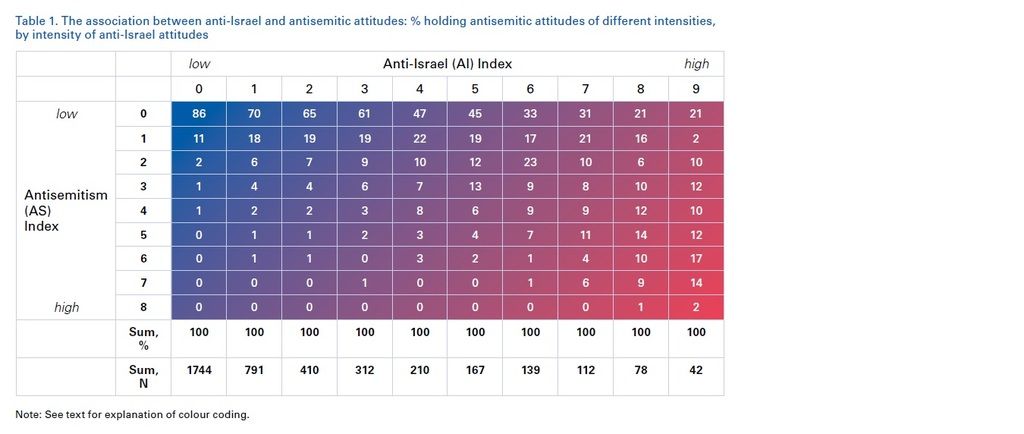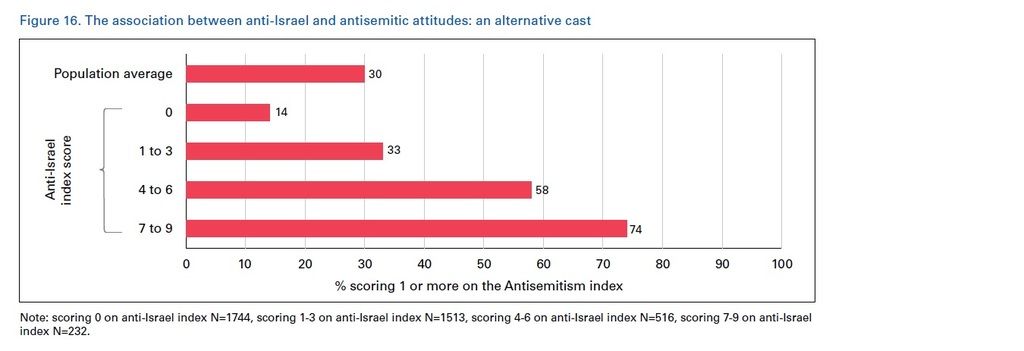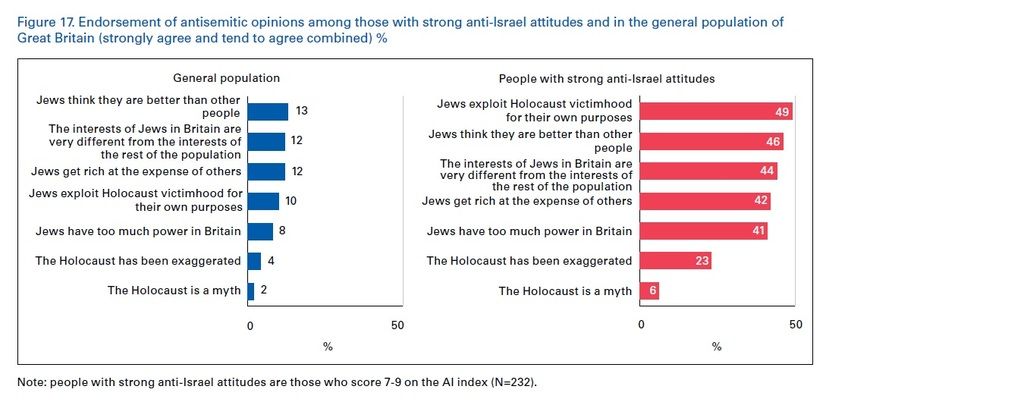- Joined
- Oct 22, 2010
- Messages
- 23,896
Post-Holocaust antisemitism has the problem that it has been utterly disgraced by the Nazi genocide, and placed under a strong taboo as a consequence - at least in the (wider) Western world. Yet the basic social conditions that have produced antisemitism in the past still exist. So you have loads of people whose attitude towards Jews ranges from irrational dislike to projective hatred, but they don't have a socially acceptable way to act out on it. The open Jew-haters will target Israel anyway. The vast majority who have the urge to keep a more respectable profile will engage in "criticism of Israel".
Decoupling the phenomenon of the remarkable public fixation on Israel from antisemitism is something that doesn't make sense under these conditions. Whoever is serious about opposition to antisemitism will have to face this reality, and the power these resentments have over widespread perceptions of the ME conflict. Most who understand themselves as being "critical of Israel" are still short of making even the first step in dealing with this reality: acknowledging it exists.
1. That is certainly true or some of them. But there are many personally or politically anti-Semitic people who have no problem in allying with Israel. Reagan and Nixon are famous examples, but you can find many in today's European right.
And it is quite easy to show that support for Israel is the criteria by which one's anti-semitism is judged. For example, whatever Corbyn is alleged to have said compeltely pales in comparison to this:
This is literal Hitler apologism from the Zionist leader (source). There are also the Soros octopus memes posted by his son. I don't know how much more blatant it can get.Mr Netanyahu insisted Adolf Hitler had only wanted to expel Jews from Europe, but that Grand Mufti of Jerusalem Haj Amin al-Husseini told him: "Burn them."
Yet, while Chomsky and others are routinely called "self-hating", even the thought of using that phrase for Netanyahu is blasphemy. Which to me suggests that the mainstream view of anti-semitism is indeed support or opposition to Zionism.
2. That is why I don't see any way forward in the Israel-Palestine conflict at all. A one-state solution will probably mean Jewish genocide. A 2-state solution has been made impossible by settlements. So the only logical outcome to solve the conflict is Palestinian genocide, or, the displacement and/or murder of the descendants of many of the Arabs living on the land currently occupied by Israel.





